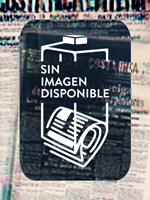Información Importante
Debido a los elevados costos del mantenimiento de las imágenes, se ha restringido su acceso solo para las personas registradas en PrensaCR.
En caso de poseer una cuenta, hacer clic en “Iniciar sesión”, de lo contrario puede crear una en “Registrarse”.
Iniciar sesión Registrarse
actor 2010 6887 REPRODUCED AT THE NATIONAL ARCHIVES REPRODUCED AT THE NATIONAL ARCHIVES WITH ANSRG.
COSTON2 on UCLG 13 DOT FICUT 19871, 020 Tin a 919 WAAR GEUSS 7930. 5in the press of April 16, that the public and other interested persons would have until May 3, to make their comments on the bill. Mr. Hamer was told by the President, however, that his company observations should be in by April 26, and that company still fears that the labor code is to be passed by May cochise.
preretobol Trobel fre preletab she coke ente olt!
It is understood that Oscar BARAHONA Streber was charged by the President with the drafting of this code.
Mr. Barahona was formerly the press and publicity director of the Costa Rican Social Insurance Board, but he resigned, reportedly in disgust over the manner in which this Board carried out its duties. There is very little doubt that Manuel Mora had an important part in drafting the law.
He was familiar with its provisions before it was published and made two radio addresses, one on Saturday night, April 3, and a second on Saturday night, April 10, 8:30 calling for its passage. In these two speeches, Mora placed his party and his adherents squarely on record as being unconditionally in favor of the passage of the labor code, and to the inclusion of certain social guarantees in the Constitution which were proposed in May 1942 in President Calderón Guardia message to Congress and reported in my despatch No. 389 of January 19, 1942. The votes of his party, he promised, would be given to the administration if they carried out these proposals. If, however, certain elements in the present administration were able to block these social gains, the laboring groups would cast their votes for the Democratic party headed by León Cortes should that party sponsor them. If neither of the parties give unqualified adherence to the labor code, and the inclusion of the social guarantees in the Constitution, or if either of the parties emasculate the proposal, then, said Mr. Mora, his party would run on a separate ticket. The Democratic party has not come out unreservedly in favor of these two proposals to date, though León Cortés gave an interview to the press on April 18, stating that he would respect, and improve, if necessary, social guarantees, if he became President. He pointed out that such a system must be freed from bureaucratic control and give labor only the rights it deserved without ruining the national economy. The Administration party thereupon came out in the press of April 20, and accused Cortés of being against the code and better conditions for the workers.
lo 1743 In his second talk on April 10, Mr. Mora began by observing that certain reactionary forces in Costa Rica are trying to play football with the social aims which he is backing. Certain wealthy people, pointed out Mr. Mora, are implying that President Calderón Guardia is favoring Communism for political reasons and the number of votes involved, and certain poor people claim that the Communist party and Manuel Mora himself have sold themselves out to the President. There are rumors to the effect that Mr. Mora has been involved in business deals with the local administration which have been greatly to his financial advantage, and in his talk he was at some pains to refute them. He admitted that he frequently held personal conversations with the President of the Republic who, he said, knew full well that he, Mora, was not 100 percent in favor of the present administration. But, said Mr. Mora, he was entirely convinced that President Calderón Guardia is very sincere in his desire to improve the conditions in the laboring class, particularly those
Notas
Este documento no posee notas.
